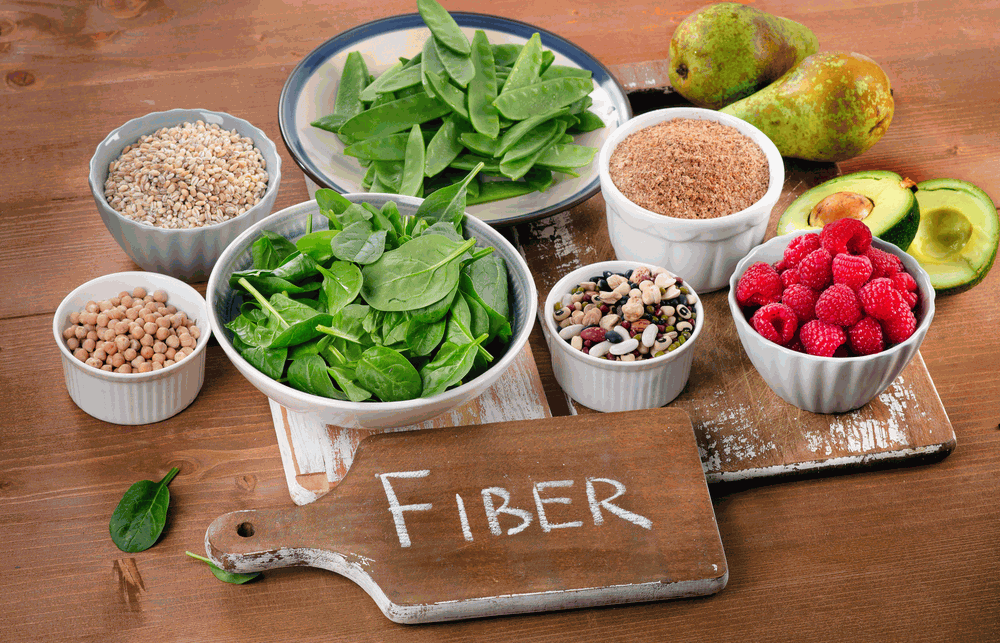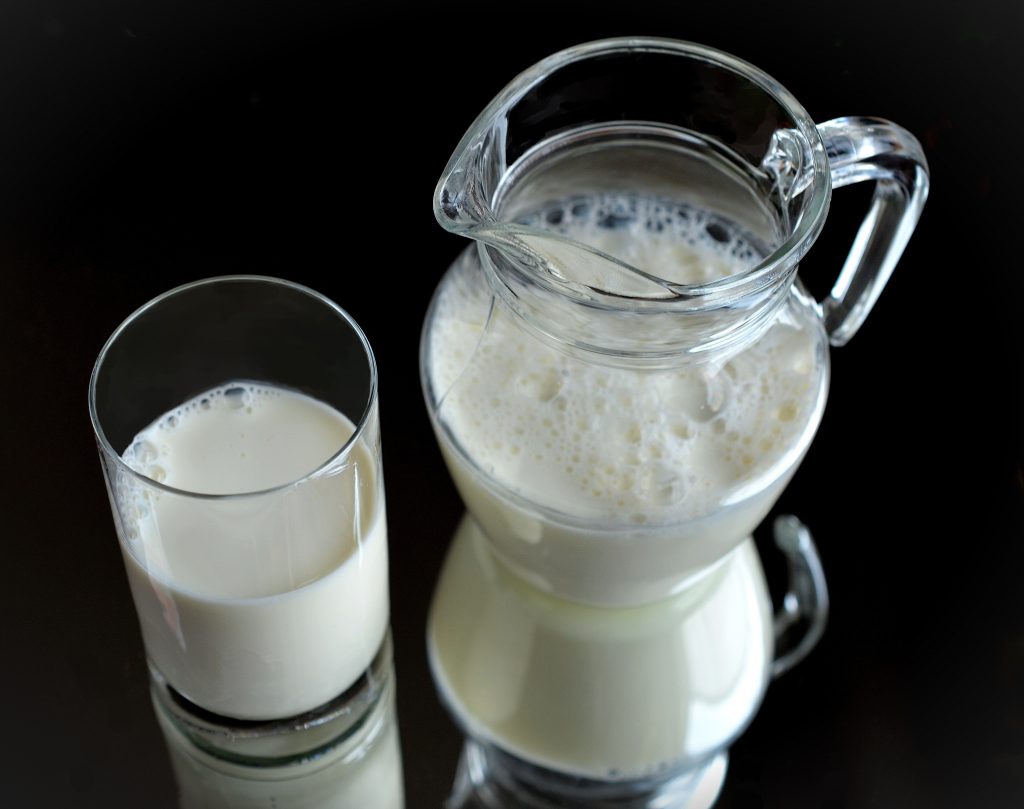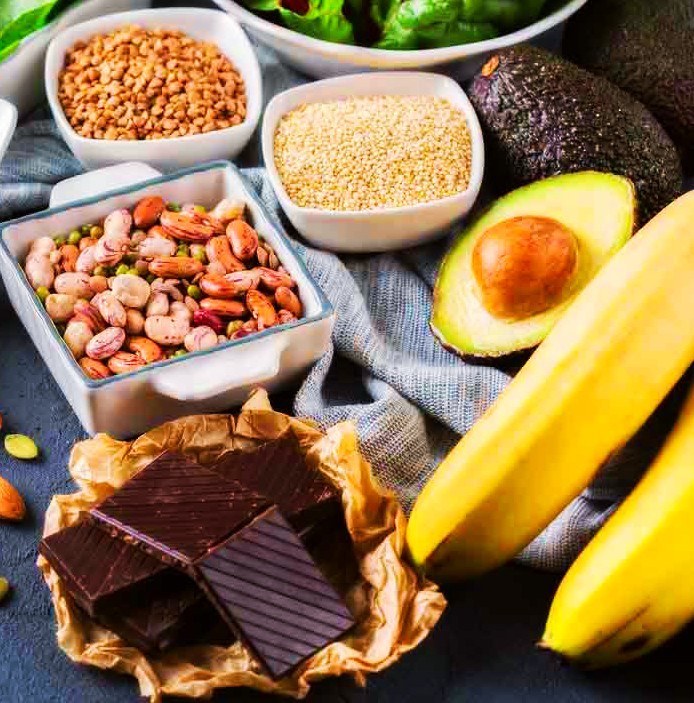
Contents [show]
Constipation usually occurs in a person when they do not have enough fiber or water in their diet. It can also result from a lack of physical activity or be a side effect of taking certain medications. Everyone experiences this phenomenon from time to time, be aware that there are several natural and light remedies to relieve and prevent constipation. By making a few small adjustments to your daily routine, you can cope with this problem without spending anything and staying in the privacy of your own home. Natural remedies and some lifestyle changes can help you tackle your constipation problem now and prevent it from happening again in the future.
Read Also: 21 High Fiber Foods List – You Must Eat
Act immediately if you feel you have constipation problem

Drink more water

Hard, dry stools are often the cause of constipation, which is why the more water you add, the easier it will be to pass stools. Drinking more water is especially important if you are increasing your fiber intake.
- Men should drink at least 3 liters of liquid per day (no, not Pastis!) And women at least 2.2 liters.
- Avoid alcoholic or caffeinated drinks if you are constipated. Caffeinated drinks such as coffee or sodas, as well as alcohol, are diuretics. Diuretics dehydrate your body causing loss of fluid through the urine, which can worsen constipation.
- Other liquids, such as juices, broths, and herbal teas, are good sources of liquids. Avoid caffeinated teas. Pear and apple juice are moderate natural laxatives.
Read Also: Morning Water Therapy: Drinking Water On Empty Stomach
Consume more fiber

Fiber is a natural laxative. They increase the water content of your stools and help strengthen them. So your stool will move faster and more fluidly in your colon. If you suddenly change your fiber intake, you risk being bloated and having a gas, which is why you must increase your fiber intake gradually over several meals. Experts recommend an intake of 20 to 35 grams of fiber in the daily diet.
- Fiber can reduce the body’s absorption of drugs. Take these at least an hour before consuming fiber or at least two hours after.
- Here are some great ideas for increasing your fiber intake.
- Berries and other fruits, especially those with edible peels, such as apples and grapes.
- Green leafy vegetables like kale, mustard, beet tops, Swiss chard.
- Other vegetables such as broccoli, spinach, carrots, cauliflower, Brussels sprouts, artichokes, and green beans.
- Legumes and other vegetables such as kidney beans, white beans, chickpeas, pinto beans, lima beans, As well as lentils and black eye beans.
- Unrefined whole grains. A good rule of thumb: if the color is light or white, it means that the product has probably been refined. Choose whole grains such as whole rice, popcorn, crushed oats, barley. If you eat cereal, read the labels to make sure your choice is high in fiber. Choose wholemeal bread made from unrefined and unenriched flour.
- Seeds and nuts such as pumpkin seeds, sesame, sunflower or flax seeds, as well as almonds, walnuts, and pecans.
Eat prunes
Prunes are rich in iron. They also contain sorbitol, a sugar that helps soften the stool and therefore relieve constipation. Sorbitol is a mild colon stimulant that helps reduce the time it takes to pass stool and decrease the risk of being constipated.
- If you don’t like the wrinkled texture or unique taste of prunes, you could try prune juice. But do not forget, however, that the latter contains less fiber than prunes.
- 100 grams of prunes contain 14.7 g of sorbitol, while 100 g of prune juice contains 6 g of sorbitol. You will need to drink more prune juice to get the same benefit, but you will also be taking in more added sugar.
- Do not overdo your consumption of prunes. These should take effect in a few hours. It is important to consume a portion of a glass of juice first and let it make its way into the intestines before taking more, otherwise, you may get diarrhea.
Avoid cheese and dairy products

Cheese and dairy products usually contain lactose, which many people are sensitive to. This lactose is likely to cause bloating and constipation in some people. If you have constipation problems, stop the cheese, milk and most dairy products until you feel better.
You can make an exception for yogurts, especially if they contain live probiotics. It has been shown that yogurts containing probiotics such as Bifidobacterium longum or Bifidobacterium animals promote more frequent and less painful bowel movements.
Consume bulking agents
There are several herbs with a mild flavor that have a laxative effect and soften the stool. These are for example psyllium, flax, and fenugreek. Most of the time you will find these supplements in capsules, tablets, and powder, in organic stores and some pharmacies. Some may also be available as infusions. Take these bulking agents with plenty of water.
Psyllium is found in several forms, for example in powder or tablets. It is also the active ingredient in commercial preparations like Metamucil. Psyllium can cause flatulence or cramps in some people.
Flax seeds are used against constipation and diarrhea. They provide fiber and omega 3 fatty acids. You can mix flax seeds with your yogurt or cereals.
Flax seeds are not recommended for people who have circulation problems, intestinal obstructions, or high blood pressure. Do not take either flaxseed if you are pregnant or if you are breastfeeding.
Fenugreek is used for several digestive problems, such as a stomach ache or a constipation problem. It is risky to use fenugreek if you are pregnant or breastfeeding your child. Also, do not give fenugreek to young children.
Take castor oil
When you are constipated, castor oil (cascara) stimulates your intestines. It also helps lubricate your intestines so that the stool slide more easily.
Castor oil is generally considered to be safe. However, you should stick to the recommended amounts. If you have appendicitis or intestinal blockage, you should consult your doctor. Do not use castor oil if you are pregnant.
Castor oil can cause some rare, unpleasant side effects if you take too much. An overdose of castor oil can cause abdominal cramps, dizziness, fainting, nausea, diarrhea, rashes, shortness of breath, chest pain and stiffness in the throat. If you have taken too much castor oil, contact the emergency services.
Be aware that fish oil could cause constipation. Do not take fish oil supplements unless directed to do so by your doctor.
Take magnesium

Magnesium can be very effective in relieving constipation. It helps bring water back into the intestines and soften the stool so that it can circulate in the intestines. Consult your doctor before supplementing with magnesium, as it may interact with medications such as antibiotics, muscle relaxants, and blood circulation medications. Magnesium intake can come from food sources such as broccoli or vegetables, but also several other sources.
Read Also: Magnesium: Health benefits, deficiency, sources, and risks
You can consume magnesium by adding a teaspoon (or 10 to 30 grams) of Epsom salt (magnesium sulfate) in 200 ml of water. Mix well and drink. Some people do not appreciate the taste of this mixture too much.
Magnesium citrate is found in tablets and oral suspensions. Follow the dosage described on the package (or prescribed by your doctor or pharmacist). Drink a glass of water with each dose.
Magnesium hydroxide, also known as milk of magnesia, is also effective in treating constipation.
Make long-term lifestyle changes
Include yogurt in your daily diet

Yogurt contains live bacterial cultures (probiotics) which create a good environment for your digestive system to be healthy and functioning regularly. Try adding a pot of yogurt in your daily diet.
The bacteria in yogurt are thought to alter the microflora in the gut. Thanks to this, the time of digestion and residence of food in your digestive system is reduced.
Read Also: 10 Proven Health Benefits Of Yogurt
Check the product label to make sure your yogurt contains “active cultures” of live bacteria. Without live cultures, yogurt will not have the same effect.
Other fermented and cultivated products contain beneficial bacteria that promote digestion and can relieve constipation, such as kombucha, kimchi and sauerkraut.
Avoid industrial foods
Industrial foods and “fast foods” can contribute to chronic constipation. They are often high in fat, low in fiber and do not contain many nutrients. It is best to stay away from the foods listed below.
Refined or enriched grain products. White bread, pastries, most kinds of pasta and even breakfast cereals often contain flour which has been stripped of most of its fiber and nutritional value. Instead, look for whole grains.
Junk food. Foods high in fat and sugars can cause constipation. Your body will first try to draw calories from fat and this will slow down the digestion.
Sausage, red meat and cold meats are high in fat and salt. Instead, favor lean meats such as fish, chicken, and turkey.
Crisps, fries, and the like don’t have a lot of nutrients and are low in fiber. Rather prefer baked or boiled sweet potato fries or popcorn.
Do more sport

A lack of physical exercise can lead to weakness of the intestines which will have difficulty in evacuating waste regularly. A sedentary lifestyle can affect digestion and cause constipation. Get moderate physical activity at least 3-4 times a week.
Walking, swimming, running, and yoga is a great option. Even 10 to 15 minutes of exercise a day can help your body regulate itself.
Read Also: Natural Ways To Get Rid Of Constipation
Do not ignore the natural rhythms of your body
Your body will tell you when it is ready to go to stool. Several options are possible about a stool frequency considered to be “normal”. Many people go there 1 to 2 times a day on average, but others only go 3 times a week. As long as your body feels good, you do not have to worry about your stool frequency.
Read Also: How To Use Aloe Vera To Treat Constipation
Constipation can occur or be made worse by not being able to go to the bathroom when you want to. If you frequently reject your cravings, your body may stop sending you the signal. Delaying this moment will make it more difficult later.
Avoid becoming addicted to laxatives
Too much use of laxatives, especially stimulant laxatives, can make your body dependent. Do not use laxatives every day. If you have chronic constipation, see your doctor for an alternative treatment.
In the long term, it is better to use a laxative containing polyethylene glycol than another type of laxative.
Try other options to relieve constipation quickly and naturally
Play sports
If you can, try to make regular small “on” breaks to massage your intestines.
Start by walking slowly for about 30 seconds. Gradually increase the pace until you walk as fast as possible.
Take a brisk walk for about 5 minutes. Then slow down for the next 5 minutes. You should total walk 10 minutes every hour.
If you can’t spend this time walking because of your other responsibilities, don’t worry. Just try to increase the number of times you walk faster than usual.
If your constipation is severe, try not to be discouraged by the uncomfortable nature of the situation. It is better than an extra day of constipation.
Try a different position
Aboriginal People tend to go to the toilet squatting position, which may be useful. When you are the toilet, use a stool or the edges of the bowl to support your feet.
You should bring your knees as close to your chest as possible. This increases the pressure on your intestines and makes it easier to pass stool.
Try yoga

There are several yoga postures to stimulate your bowels and put your body in a comfortable position for bowel movements. These postures can increase the internal pressure on your bowels and make them more easily evacuate stool. Here are some examples of postures.
Baddha Konasana: in a seated position, bend your knees, bring your feet together so that your soles are in contact and grab your toes with your hands. Quickly kick your legs, then lean forward until your forehead hits the ground. Hold the position for 5-10 breaths.
Read Also: How to do yoga? A proper guide to do yoga
Pavanamuktasana: when lying down, stretch your legs out in front of you. Bring one knee to the chest and hold it with your hands. Choose a leg to pull your knee against the chest and flex your toes. Stay in this position for 5 to 10 breaths, then repeat with the other leg.
Uttanasana: start from a standing position, legs straight, and bend at the waist. Touch the mat with your hands or grab the back of your legs. Stay in this position for 5-10 breaths.
Take mineral oil
Liquid mineral oil will cover your stool with an oily and waterproof film. So your stool more easily retains moisture and will move in your fluid colon. You will find mineral oil in pharmacies. To consume it, it is generally combined with a liquid such as milk, juice or water.
Do not take mineral oil without first consulting your doctor if you have any of the following: an allergy to a food or medication, if you are pregnant, if you have a heart problem, appendicitis, difficulty swallowing, stomach pain, nausea or vomiting, rectal bleeding or kidney problem.
Do not take other laxatives or stool softeners at the same time as mineral oil, unless recommended by your doctor.
Do not give mineral oil to a child under 6 years of age.
Do not take mineral oil regularly. Regular use can lead to dependence on the laxative effect. It can also prevent your body from absorbing enough vitamins A, D, E and K.
Do not take more than the recommended dosage of mineral oil. An overdose could cause serious side effects, such as abdominal pain, diarrhea, nausea, and vomiting. If you take more than the recommended dose, seek medical emergency assistance.
Try plants with depurative properties
In the case of rare or severe constipation, there are more powerful plants that can relieve the problem. Prolonged consumption is not recommended, they should be considered a last resort if the rest has not worked. The medicinal plants below are examples.
Sennosides are stimulant laxatives. They hydrate your intestines to help your stool move more smoothly. It usually takes 6 to 12 hours for natural senna laxatives to take effect. They are available as oral suspension or tablets.
If you have recently had surgery, you are already taking laxatives every day or you already have a problem in your digestive system, consult your doctor before using senna.
Buckthorn is often used to treat constipation. Only short-term use (less than 8-10 days) is recommended. It is likely to cause side effects like cramps, diarrhea, muscle weakness, and heart problems. It should not be used if you are pregnant, breastfeeding or if you are under 12 years of age.
Do not take buckthorn if you have stomach pain or intestinal problems, such as appendicitis, Crohn’s disease, irritated bowel syndrome (IBS) or ulcerative colitis.
Seek medical treatment
Observe if you have blood in the stool
If you have severe abdominal pain and see blood in your stool, see your doctor immediately, as it can be a more serious problem than just constipation. Don’t worry, once the doctor finds the cause of the symptoms, they can recommend the appropriate treatment. If you have any of the following symptoms, make an appointment with your doctor or go to the emergency room:
- bleeding;
- blood in the stool;
- permanent stomach pain;
- swollen belly;
- difficulty expelling gas;
- you vomit;
- painful lower back;
- fever.
Read Also: Can Constipation Cause Cancer? Symptoms And Treatment
Note intestinal problems
If you have to bloat for more than 3 days, visit your doctor. You may need powerful laxatives that are only sold by prescription. The doctor can also determine if there is another underlying problem.
A doctor can prescribe medications that are only available by prescription.
Laxatives usually only work from 2 days. You should generally not take them for more than a week.
Consult your doctor if constipation does not improve
If you are constipated several days a week for at least 3 weeks, the problem becomes chronic. Your doctor can determine the reason and offer you different treatment options such as laxatives which can help bowel movements.
If you have changed your diet or lifestyle, tell your doctor, he may recommend other things that can improve your condition.
Talk to family members
Find out if any of your family members have colon problems or have had colon cancer. Constipation is a problem that normally gets better with a change in diet or lifestyle. Even if it is not serious, it is better to consult a doctor, he can recognize the signs indicating a serious problem and treat you as soon as possible.
He will certainly ask you to continue to take care of yourself as you did before, but it is always better to take care of his health.
Advice from Healthzigzag.com
- If you have a recurring constipation problem and none of the above methods work, speak to a healthcare professional to discuss your problem.
- If your situation does not improve, you can combine several methods. You can, for example, increase your fiber intake, go for a walk, take a senna tea or try some yoga postures. However, do not take more than one type of laxative at a time.
- Eating high-fiber foods and drinking lots of water will not only relieve your constipation but will also prevent it.
- Even if it’s difficult, try to relax and let your bowels (and gravity) do most of the work when you go to the bathroom.
- Try to drink lemon water. The acid in the lemon will soften the stool and make it easier for your bowels to move.
- It is difficult to predict which method will work, how well it will work and when. Make sure you have the time and the ability to use the restroom when you need it.
- Hot water with honey should also help.
warnings
- Do not exceed the recommended dosage for each treatment. Exceeding this dose could lead to serious side effects.
- “Natural” does not necessarily mean “safe”. Consult your doctor or pharmacist before taking a natural remedy, especially if you have other health problems. Plants and food can interact with several medications and health conditions.
- If you are pregnant or breastfeeding, or if you are caring for a constipated child or baby, consult a health care practitioner before trying any of the above methods.
- Do not take a laxative if you have strong stomach pain, vomiting or nausea.
- Aloe sap is a natural laxative. The FDA does not allow the marketing of aloe sap counter for safety reasons. This very powerful product can irritate your intestines and its use is not recommended.




